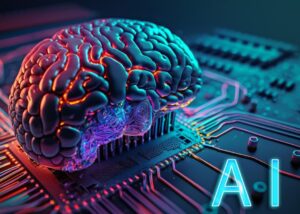In recent years, the development of artificial intelligence (AI) has led to countless advancements in various industries and fields. From self-driving cars to personalized recommendations on streaming platforms, AI has become an integral part of our daily lives. However, with this rapid growth comes the need for regulation to ensure that AI is used ethically and responsibly.
Understanding Artificial Intelligence
Artificial intelligence refers to the ability of a machine or computer program to mimic human cognitive functions, such as problem solving and decision making. This is achieved through the use of algorithms and data processing, enabling machines to learn from data and make decisions without explicit programming.
Importance of Regulation in Artificial Intelligence
As AI continues to advance and become more prevalent in our society, it is crucial that we have regulations in place to ensure its safe and ethical use. Without proper regulation, there is a risk of AI being developed and used in ways that could harm individuals or society as a whole. For example, biased algorithms could perpetuate discrimination or AI systems could be hacked and manipulated for malicious purposes.
Challenges in Regulating AI
One of the biggest challenges in regulating AI is keeping up with its rapid development and potential for innovation. Traditional regulatory frameworks may not be equipped to handle the complexities of AI, which often involve constantly evolving algorithms and large amounts of data.
Additionally, there is also the issue of international regulations, as AI has become a global phenomenon. Consistent and uniform regulations across different countries will be necessary to ensure accountability and avoid discrepancies in ethical standards.
Finding the Balance
Regulating artificial intelligence is a delicate balance between promoting innovation while also ensuring accountability and ethical use. It is important for regulators to work closely with experts in the field to understand the capabilities and potential risks of AI, as well as involve stakeholders from various industries that are incorporating AI into their operations.
Another approach is self-regulation by companies developing and using AI. This involves creating their own ethical guidelines and standards to ensure responsible use of AI.

Case Studies in AI Regulation
Several countries have begun to take steps towards creating regulations for AI. For instance, the European Union has proposed new regulations that would classify AI systems according to their risk level, with stricter requirements for higher-risk AI. Meanwhile, in the United States, federal agencies are starting to examine how their current regulations apply to AI and what changes may be needed. This includes the Food and Drug Administration, which is looking at how to regulate AI in medical devices.
The Future of AI Regulation
The future of AI regulation will likely involve a combination of government regulations, self-regulation by companies, and international cooperation. This comprehensive approach is necessary to ensure that AI develops in a way that benefits society as a whole and minimizes potential harm. As technology continues to evolve, it is crucial that our regulatory frameworks evolve with it, maintaining a delicate balance between innovation and accountability. By working together, we can harness the power of AI for the betterment of our world. So, it is important to continuously monitor and evaluate the effectiveness of regulations in order to adapt and improve as needed. Additionally, transparency and collaboration between regulators, developers, and users of AI will be key in creating a responsible and ethical environment for its development and use.
In conclusion, while artificial intelligence has immense potential for innovation and progress, it is essential to have proper regulations in place to ensure its responsible and ethical use. The future of AI regulation will require collaboration and adaptability in order to strike the right balance between advancing technology and protecting society. By addressing these challenges head on, we can continue to harness the power of artificial intelligence for the betterment of our world. Let us embrace the advancements and potential of AI, while also ensuring that it is developed and used in a responsible and ethical manner. The future is bright, but only if we approach it with caution and accountability.
To read more articles visit Zara Nook


